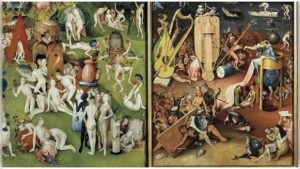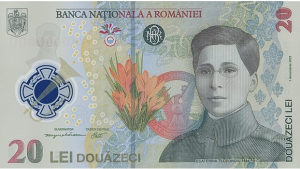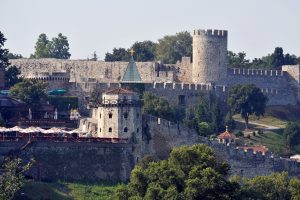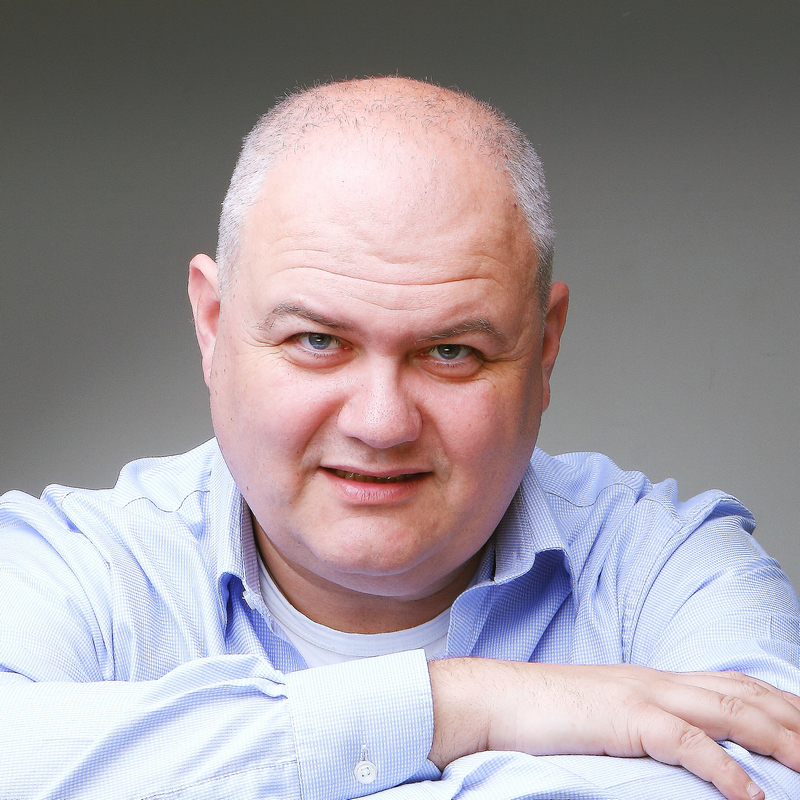A “reformer” agent in the Jewish denominational leadership (1958-1962)
At the end of the 1950s, the state security scene dealing with the internal relations of Hungarian Jews was enriched with reports having a peculiar content and atmosphere. The author of the report, an agent with the alias „Doktor”, who held a high position in the community (he was born in Gyöngyös and was a rabbi in Buda) and knew the affairs of the Budapesti Izraelita Hitközség (Budapest Jewish Community – BIH) and the Magyar Izraeliták Országos Képviselete (National Representation of Hungarian Israelites – MIOK) from the inside, kept the state security informed of the denomination’s situation in Northeast Hungary, as well as regarding MIOK’s foreign and domestic relations, especially with the Israeli Embassy, and also monitored youth and cultural events.
MIOK was undergoing slow consolidation at that time, and under the leadership of Endre Sós (1905-1969), who was elected president in 1957 (and acted himself a state security agent), it tried to bring about a kind of intellectual “renewal” in the dwindling community, but without much success. Further measures by the state restricted the freedom of movement for Jews with, who were already confined within the walls of the synagogues (, prior approval was necessary for the appointment of their leaders), while at the same time, the international relations among Jews revived, and Professor Sándor Scheiber was able to operate and expand his freedom of movement using the resources provided by the Claims Conference.
According to a 1962 record by Endre Sós, there were 40 synagogues and 31 branch synagogues in the country at that time, led by 15 neolog and 10 orthodox rabbis. In addition to MIOK (or MIOI), an Orthodox school operated within the flagship BIH; its “lecturer” was the renowned Chief Rabbi Jenő Schück (1895-1974), who was also the President of the Orthodox Rabbinical Council and (from 1960) the Chief Orthodox Rabbi of Miskolc during that era.
Coming back to the agent reports, there is something very special about them, because that intelligent agent also came up with ambitious reform ideas. It is very rare to find a state security agent who wanted to impose his organisational reforms in this way, but „Doktor” was this type of actor in the events he was covering. It is worth reviewing his wide-ranging activities and his related ideological and political preferences.
Although it is stated at the end of his state security file that he was recruited in August 1960, namely on the basis of “compromising information”, this seems to be contradicted by the fact that his first report dates back to late 1958. Although it is unknown whether these reports were commissioned or were the result of internal motivation, these materials were exceptionally extensive and thorough. Although he did not have many good things to say about Sándor Scheiber, targeted by state security, the director-professor of the rabbinical training institute, and other leaders, his ideological political targets were however attitudes and groups, and, as this was clearly seen by the authorities, his analyses and descriptions were part of his own career line, which he tried to promote, at least according to his original intention.
“Doktor” thus observed structures, and his reports shed light on the Jewish religious community of the early Kádár regime, especially the scene in north-eastern Hungary, where the agent proved to possess a thorough knowledge of local conditions.
Of course, he was permanently preoccupied by the Israeli embassy and the development of the influence of Zionism within the Jewish community, in line with external expectation. In December 1958, he reported on the visit of Israeli diplomats to Debrecen, in May 1959 on the visit of the envoy (probably Yerachmiel Ram-Yaron) to Szeged, and in February 1960 on the presence of two Israeli diplomats at the inauguration ceremony of the “Buda Synagogue” on 15 January. In his reports, he also made sure to increase suspicions around the management of his organisation: in his major report of 15 November 1962, he not only accused Endre Sós, President of the Hungarian MIOK, of a “double game” with Israeli diplomats (“Doktor” had previously intrigued against Chief Rabbi László Salgó /1910-1985/), but also gave a detailed report on the activities of Israeli diplomats. They were collecting data and “the State of Israel is entirely dependent on American policy and, while they are aware that in the people’s democracies there is complete religious freedom and that Jews have identical rights to all other citizens, they resent the fact that the emigration of Jews from the people’s democracies is subject to certain regulations.” This shortcoming is most sharply raised in connection with the Soviet Union, from where it is not possible to emigrate at all”.
A cornerstone of the “Doktor’s” worldview was his opposition to orthodoxy. Not only did this manifest itself in his personal dislike of orthodox leaders, but, in his reports, he also sought to slander this type of Jewry in general. He certainly tried to politicise his neolog antipathy to orthodoxy, which dated back to the 19th century. There were ways to do this: in several reports (for example: 26 March 1959) he reported that, in the Debrecen parish, in Bajcsy Zsilinszky Street, the Orthodox had an unused room, which the local council wanted to pass to the Alföld Catering Company, but the Orthodox people resisted. The matter was referred to the chief spokesman of the local church office (Comrade “Szombati”), who wanted to settle the dispute peacefully. The Orthodox, however, continued to protest, stating that the site had once been a church and that there was therefore a “religious obstacle to the handover”. A member of the local religious community and a representative of the company got into an argument, and Endre Sós, the president of the MIOOK, was forced to pay a conciliatory visit to the town.
The congregational policy of pushing for the handover of the properties, which embraced the party-state’s views to a large extent, openly confronted the position of Orthodoxy, which promoted the primacy of the views of traditional Jewry, and the agent, who held a serious position in the denominational leadership, reacted to this in his reports.
The Orthodox problem within the parish of Debrecen compelled „Doktor” to write on several occasions. In his report of 13 June 1961, he sharply counterposed the status quo within the united congregation and the Orthodox wing (it was a branch), the latter’s members “not being ‘native’ to Debrecen, but from the surrounding area”, he wrote. “The presidents and members of the Orthodox branch have also been integrated into the new forms of our state and are participating in the work. However, there are also those who, on religious grounds, are indifferent, even if not opposed to the state. Orthodoxy in general cannot embrace the new spirit and prefers to face the difficulties of life’s religious practice (Sabbath and holiday observance, upbringing of children, etc.)…” „Doktor” was particularly hostile to the deputy rabbi shochet Andor Frankfurt of Debrecen, who was “enemy” to the system and also blackmailed the community – in a financial sense.
The status of shochet, and of the shechita (ritual slaughter) became serious after the 1956 revolution, with Schück himself writing in the New Life Calendar that of 59 shochets, 10 remained in the country. These circumstances privileged the remaining shochets, who made use of, and sometimes abused, this privilege. At the same time, the Orthodox leaders and rabbis who were most involved in this field fought hard to keep the shochets, to ensure that they had sufficient income and to continue religious life in the countryside.
In a letter of 24 June 1957, the Debrecen parish informed Schück that shochet Jenő Eidlisz had left the service and emigrated, and Schück informed MIOI of this. We have a source from September 1957, which contains Andor Frankfurt’s demand that unless he is elected as rabbi for one year, he will refuse to slaughter. The congregation in Debrecen objected to this and wanted to give him a one-year assignment, but in any case, as we saw, he was already a deputy rabbi 4 years later.
In early December 1958, when the Religious Affairs Department of the Ministry of Social Affairs requested a report from the presidents of the municipal districts on the religious infrastructure of the mother and branch congregations in their area, the number and nature of people using the services (e.g. how many kosher households, how many people go to the mikvah, etc.) In relation to Debrecen, Dezső Gábor, representative of the Tiszántúl District and Secretary General of the Debrecen parish, wrote that Andor Frankfurt was working in one of the two shechita slaughterhouses. Gábor estimated the number of local kosher households at 180-200, and the costs of kosher slaughter (and Talmud Torah) were not directly funded by the central organisation, although it did provide a general monthly assistance to the community to cover this. By the way, Frankfurt did not only slaughter in Debrecen, but also in Berettyóújfalu, for example, once a week (report of 10 December 1958). This situation characterised the entire country.
In November 1961, Frankfurt demanded more money for himself and stopped the ritual slaughter (sechita) in circumstances that are not fully revealed. The president of the congregation then dismissed him, but the Orthodox Chief Rabbi Jenő Schück supported the shochet and did not agree to employ other shochets to replace him. In the meantime, the community had closed the slaughterhouse, but, according to „Doktor”, several Orthodox had trespassed and still performed slaughter. Finally, after the MIOK’s intervention of, Chief Rabbi Schück travelled down to Debrecen and an agreement was reached with the local authorities to take Frankfurt back. ” Doktor” was very unhappy, because Schück and the Orthodox rabbinical council were unable to get rid of the shochet because of opposition from the local religious Jews, who did not want to jeopardise the supply of kosher meat. However, the matter did not go without a trace: the state security officer who signed the agent’s report, Pál Drenyószki, proposed the withdrawal of Frankfurt’s passport, who held an emigrant passport (he also wanted to leave the country), and strengthening the “counter-intelligence work” in the countryside and the provision of information to the State Church Office.
Although the case does not in all respects support the rightness of the shochet, “The Doktor’s” peculiar aversion to orthodoxy could be detected, irrespective of the actual (or semi-actual) reasons. In a summary report written on 15 November 1962, part of which is titled “The Role of the Israeli Embassy in Hungary”, he noted that the Israeli Embassy was able to build relations with the Orthodox more easily because the Orthodox ” reconcile with the democratic order hardly or not at all “. He also accused Schück of liaising with the Israeli embassy and claimed that the emigrants of recent years were mostly Orthodox. “Orthodox Rabbi Grossberg had recently visited Israel, and afterwards spent weeks in public worship giving an account of his experiences there. Dr. Gyuláné Holovitz held a similar report at a women’s group meeting in Csáki Street and Vasvári Street, but I did not allow it to be held in Buda,” – reported the „Doktor”, who vigilantly observed Jewry. In the third part of his report, which dealt with the internal situation of the “Israelite communities”, he stated ab ovo that the leaders of the denomination were not “clearly” enthusiastic about popular democracy, and that the Orthodox were at the forefront in this, “who cannot and perhaps do not want to embrace the social and working order of people’s democracy.” Most of them think about getting away.” And a good number of the Congress (neolog) rabbis are under the influence of Alexander Scheiber, and the political position of “these” is “by no means enthusiastic”, even if not hostile. The „Doktor” was bothered by the situation, and on 5 December 1962 wrote a special report on Orthodoxy, in which he wrote that “universal Jewry” must “take care of their often excessive and unnecessary expenses.” Orthodox Jews are strong in the Hungarian countryside, especially in north-eastern Hungary, and in Nyíregyháza they have “grabbed” the parish. “Doktor” also expressed his great heartache: “From abroad they are seen as positive Jews, they are more trusted and easier to approach. It is unfortunate that the official leadership of Hungarian Jewry makes all its manifestations dependent on what the Orthodox will say. That is why no easing may be made in religious life; that is why life cannot be approached (?). The Israeli embassy is also more connected to Orthodoxy, and also part of the foreign visitors, and are trying to assert their influence through them in the life of the congregation.”
The other interest of agent „Doktor” was institutional change, although he was interested in many things. In his report of 26 April 1960, he proposed the creation of a separate organisation similar to the World Council of Churches, representing the Jews of the socialist countries. The reason for it was the preparatory meeting of the organisation in Debrecen. Then, in his report of 28 April, he already wrote about the general problems of Hungarian Jewry. In this material (which he “gave” to Police Captain Lovász I.), the agent reported several of the Jewry’s problems, mostly accusing them of the “lack of planning” (obviously his own organisation). The document, published in the appendix, is a mixture of the desires of the Hungarian Jewry at that time, which really needed to be resolved, and the desire to comply with the state power. At this time, the State Church Office requested a list of denominational properties to be sold. MIOK usually adapted to the situation with enthusiasm, sometimes out of necessity. ” Doktor” was among those who pushed for the sale/transfer of the properties.
One of his major targets, or even priority areas, was the Rabbinical School. In his report of 29 July 1960, he reported on the reorganisation of the institution’s executive committee. There was also the possibility of bringing back Professor Ernő Róth (1908-1991), who had served as director of the Rabbinical School on a rotational basis with Scheiber between 1950 and 1956 (he left for Germany in 1956), but this was eventually abandoned. The state security officer assessing the report noted that the former was not enthusiastic about the idea because of the personal conflict between Scheiber and Róth. The officer also noted that „Doktor” had hoped to take up a tutorship post at the institution, but it did not materialise. Nevertheless he did not give up on conquering the institution, which the „Doktor” called a “state within the state”, and in July 1961 he devoted an entire report to the restructuring of the Rabbinical School. According to the agent, there was no need for a Rabbinical School, as there are very few students, although Alexander Scheiber is trusted by foreigners. A Hungarian Jewish Scientific Research Institute should be established, with a clear scientific profile.
With a clear interest in Debrecen, the „Doktor”, who reported on the BIH’s board meetings, was already thinking of going abroad in the summer of 1962, to Brazil, or on a mandate. In his report of 5 December 1962, he reported that, upon the instructions of the State Church Office, he had met President Endre Sós and told him that his trip to Brazil had been approved. He announced his departure at the Buda electoral board meeting.
Already after his departure, the retrospectively dissatisfied state security officer Lieutenant-General Ferenc Kelencz called him a careerist who had deceived them. In his final report, he wrote that “He tried to carry out the tasks he was given, but his careerist nature soon became apparent. He considered his main task as being to win higher positions. To us and to the outside world, he tried to present himself as left-wing, while at the same time he was building up contacts with embassy officials and the heads of Zionist bodies abroad. He was only willing to talk about these links when we asked him specifically and he understood that we were aware of them. “When evaluating the work done by agent „Doktor,” we can conclude that he is not honest in the Ministry of Interior, he is a careerist; he is pushy, a person who puts his current interests above all.” These lines suggest that the agent had broken his ties with Hungarian state security. His file was closed in February 1964.
István Végházi, former deputy secretary general of MIOK and BIH, who left for Brazil in 1962 and served as a rabbi, or as he was known there, Rabino Dr. Veghazi, died in 1999.
Source of documents: Historical Archives of State Security Services (ÁBTL) 3.1.2. M-21589. Work file „Doktor”.
Literature
László Csorba: Az izraelita felekezeti élet Magyarországon a Vészkorszaktól a nyolcvanas évekig. In: Lendvai L. Ferenc, Sohár Anikó, Horváth Pál (eds.): Hét évtized a hazai zsidóság életében. MTA Filozófiai Intézet. Budapest. 61–190.Schück, Jenő: „Az orthodoxia a felszabadulás után” In: Új Élet Naptár, 1959 (Budapest: MIOK, 1959), pp. 156–161.
Source of the opening image: Fortepan, MIOK General Assembly 1958. The picture was donated by Sándor Bauer.






